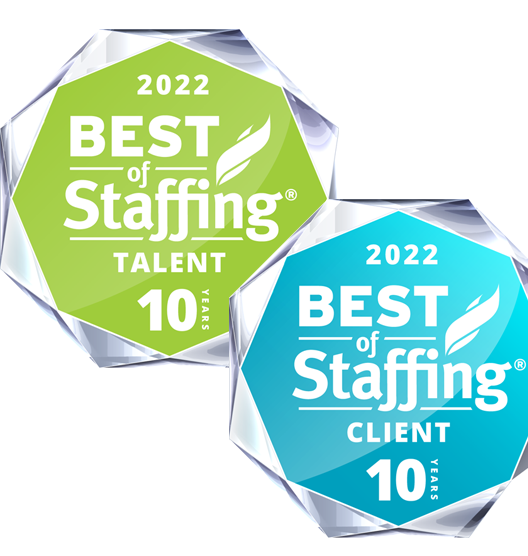A Millennial Perspective: What a Modern Career Should Look Like
By: switchandshift.com |
 A portion of millennials entered the workforce to great uncertainty, and the numbers paint a dreary narrative: 44% of college graduates in their 20s are stuck in low-wage, dead-end jobs and more young people than ever are making $25,000 or less a year. Furthermore, the high cost of college and its ensuing debt means more Millennials are also delaying life milestones, from marriage to a purchase of a new home.
A portion of millennials entered the workforce to great uncertainty, and the numbers paint a dreary narrative: 44% of college graduates in their 20s are stuck in low-wage, dead-end jobs and more young people than ever are making $25,000 or less a year. Furthermore, the high cost of college and its ensuing debt means more Millennials are also delaying life milestones, from marriage to a purchase of a new home.
I certainly won't claim to be the first millennial who looks at our future and wonders where we are headed. As I gaze over the landscape of what the Great Recession left us, I see many boomers disinterested in retirement, many Gen Xers wondering how they even "got here," and millennials becoming a larger percentage of the workforce.
I also see members of all generations struggling to find a work-life balance while working longer hours, sacrificing their health and sanity.
In many ways, we are becoming more and more incomplete.
As college students, many of us were promised a deal we'll never get: The lure of the "complete career." That was the messaging our career centers placed in front of us: The importance of passion, the need to follow a vocation, and that our 9-5 was out there, waiting for us.
With 6.5 million Americans now working part-time jobs and more working in roles they dislike, seeking that passion and that complete career is more difficult to achieve.
I offer the following observations:
The modern career no longer sustains on its own. Side passions matter as well.
Everywhere I look today my peers are taking on day jobs and then some. For example, a friend of mine in Portland organizes networking events. Other friends coach high schoolers in debate, and others run their own nonprofits. While the purpose of each of these ventures differs, it's enough for me to declare that the modern career enjoyed by my parents and generations before no longer sustains on its own. Part of the reason is because we live in uncertain economic times and amongst laws that allow for the letting go of employees without cause. When companies wonder what their applicants do when they are unemployed, the impetus for the side passion rises immensely in value.
While 9-5 and what happens on the job is important, what happens from 5-9, is infinitely more important. -- Zig Ziglar
The purpose of the manager has evolved -- and must continue evolving.
English poet John Donne wrote that "no man is an island" and that we are all connected. In still uncertain economic times, the role of the direct line manager has evolved. While encouraging focus is still a pressing need, managers must also serve as mentors for their reports due to the disconnect between higher education and the role of work.
Many new grads walk into the office on the first day not knowing how to answer email, much less the office dress code. And yes -- while a manager catching their direct report at work doing "personal work" can be disastrous for the report, it could also open up an entirely new conversation around purpose, interests, intentions, and career advancement in the same -- rather than a stern look and a warning via human resources.
Everybody is a genius. But if you judge a fish by its ability to climb a tree, it will live its entire life thinking it is stupid. -- Albert Einstein
We are the sum of more than our attention spans.
The gift and the curse of the millennial (and Gen Z) employee is the short attention span. As generations who think in 140 characters, take videos in 6 second spurts, and write 2-line status updates while sending text messages, much has been made about how we can't focus.
However nauseating this may be, no one ever asks why we have a short attention span or how to take advantage of one for greater productivity. I personally believe that if a millennial at work is kept interested through a variety of creative, interesting, and meaningful projects in addition to what they might be doing on the side, they will be more interested in staying and more productive.
So what gives?
What the new complete career comes down to is the need for a thoughtful transition. While evolving the paradigms of work will take immense effort, I believe the benefits far outweigh the alternative of a lost generation, wondering what could have been and where they could have gone. Careers must stoke the fires of our passions, both during the day and in the evening, and the narratives always extend beyond being on social media at an inopportune time or demonstrating mindlessness: They must also create a complete human being.
If effective managers intend to keep their reports, I believe the following must happen:
- Holistic management: This is more than managing up and down, as the traditional employment model promotes. While industry blogs tend to vouch for personal growth off the clock, the reality of contemporary work means personal growth is in progress -- even during the workday.
While I don't think managers should care for their reports like each was their child, I do believe that preaching mindfulness and reminding millennials of their purpose is especially strong. - Holistic employee identity: Alongside holistic management is the creation of holistic employee identity. With so much going on in today's world, we are more than the sum of the 40 hours per week we spend at work. In the way issues are handled currently, many companies punish their employees for working on projects on company time without knowing what exactly those projects are. What if we took the step further and sought to learn?
- Pursuit of passion: Up until several years ago, search engine giant Google allowed their employees to spend a part of the work week on their own projects. While this policy has since been revoked, the spirit has remained alive. Managers should encourage and ask their reports about their passions, beyond pastimes enjoyed on the weekend.
- Unconditional management: The finality of taking a job in the modern age weighs much less than it used to when individuals rarely switched what they did. I believe this is due to miscommunications and the availability of communication channels for specific topics. In today's world, most just decide to leave, but what if changes could be made? For example, if my new job promised me the ability to launch products but I ended up doing a lot more writing due to organizational change, this discussion should be available without retaliation.
This article originally appeared on switchandshift.com





